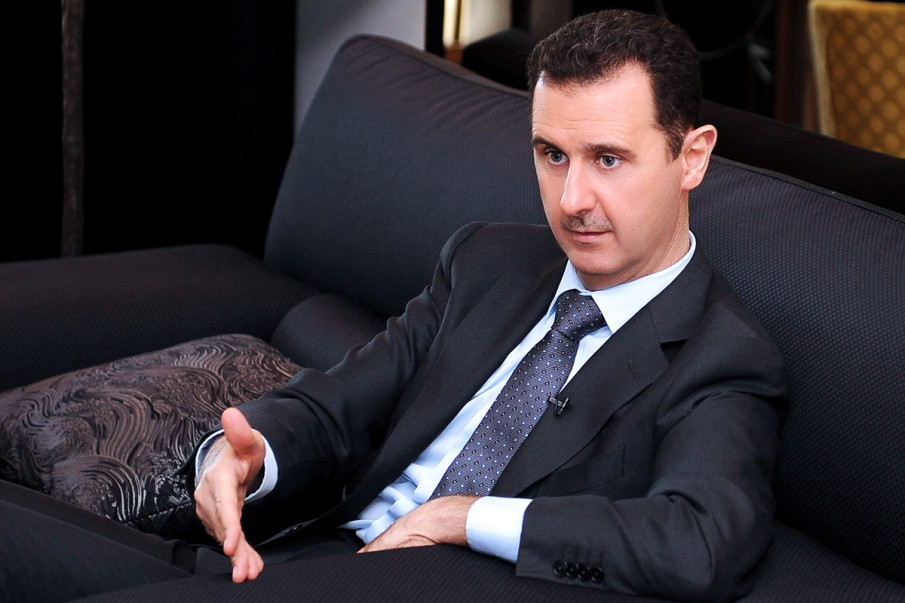Australia’s Foreign Minister Julie Bishop has recently indicated that our government is considering softening its opposition to the Assad regime in Syria. While still backing Australia’s earlier tough stance taken against the Syrian president, Ms. Bishop has been quoted as saying:
“The fear that a number of countries have is that if the Assad regime were either removed or collapsed, it would create a vacuum, and one might find that it was filled by an even more diabolical presence than the Assad regime. I don’t for a moment shy away from the comments that we have made in the past about the illegitimacy of the regime. President Assad unleashed chemical weapons on his own people, and the death and destruction in Syria is appalling and at unprecedented levels.
“The humanitarian crisis is creating an issue throughout the Middle East and Europe, the likes of which we’ve not seen before. The Assad regime has been diabolically bad for Syria, however we’re dealing with reality and the fact is we need a political solution because a military solution will not be the only answer.”
Ms. Bishop also went on to acknowledge the complexities surrounding Russia’s involvement in Syria:
“The reality is president Assad is still in Syria, the reality is Russia is backing President Assad. We must find a creative way of trying to bring some kind of peace and security and unity to Syria. Australia’s view is that all options should be considered. Russia’s involvement [in negotiations with Iran over their nuclear program] has been said to be very positive by all of those negotiating that agreement.
“If we use that as an example of Russia’s preparedness to be part of a solution rather than part of the problem, then we can have some optimism that Russia’s involvement is positive. I would not like to think that Russia’s involvement was purely for its own self interest.”
Despite the adverse rhetoric expected from the Leader of the Opposition, I actually think this particular approach—or at least the willingness to open a dialogue on a shift in thinking—is a positive step that has the potential to open up a raft of unique solutions to the conflict-ridden country. Although the Australian government is not entirely distancing itself from its previous stance against the Syrian regime, it seems to be applying a more balanced approach to finding a workable solution to an almost impossible problem.
Ms. Bishop also acknowledges the fact that military action alone is simply an insufficient strategy. Trying to force democracy and Western values onto countries in the Middle East always conjures up the old “square peg, round hole” analogy. We can sit here and criticize the way that Bashar Al-Assad or Saddam Hussein ruled Syria and Iraq respectively, but has anyone stopped to think that maybe these countries actually need to be ruled with an iron fist for stability?
The religious, economic, social, and political problems that these countries are facing are all intertwined and incredibly complex. On every one of my deployments to Afghanistan, we were briefed on the tribal structure of the country and presented with coloured and diagrammatical maps which represented this breakdown. The country is essentially divided into 34 provinces with 364 municipalities which ultimately dictate the social, political, and economic life of these particular regions.
What I have come to realise is that it is all but impossible for any one tribe to govern all of Afghanistan without the other tribes feeling underrepresented. This is why trying to implement democracy in countries still caught in such a primitive, non-secular governance is going to be fraught with problems. Iraq can be viewed as having similar issues. A democratically elected Iraqi prime minister is almost certainly going to be Sunni or Shia, which, realistically, is all but irrelevant based on the problems that will invariably arise amongst the non-elected denomination.
The signaling of a potential shift in our current approach to the Syrian regime was certainly unexpected, although, in my opinion, not unwelcome. The Australian government has indicated that it understands a political solution is needed in conjunction with a military one, and that engaging with the Assad regime may be the most appropriate response given the circumstances.
Already have an account? Sign In
Two ways to continue to read this article.
Subscribe
$1.99
every 4 weeks
- Unlimited access to all articles
- Support independent journalism
- Ad-free reading experience
Subscribe Now
Recurring Monthly. Cancel Anytime.
Although Australia’s foreign minister has not redacted any previous statements made about Bashar Al-Assad and how he has governed his country, I for one am not opposed to our government trying to find solutions with him rather than in opposition to him. The Middle East is not unknown for its non-secular and fanatical religious proponents. Religion still dominates much of the region’s political, social, and economic landscapes, resulting in a complex environment for Western nations to effectively navigate.
Rather than trying to oust regimes in these regions that don’t “conform” to Western ideals, we should be looking at alternative solutions such as those proposed by our foreign minister. Saddam Hussein may have been a ruthless leader, but look at what has happened to Iraq since he and his regime were toppled. I believe that the type of extremist which have/are emanating from that region need an equally extreme leader/dictator to keep them in check. This is also why I believe that democracy is moot and a simply unworkable ideal in these countries as long as religion still strongly dictates their political affairs.
(Featured image courtesy of orientalista.hu)










COMMENTS